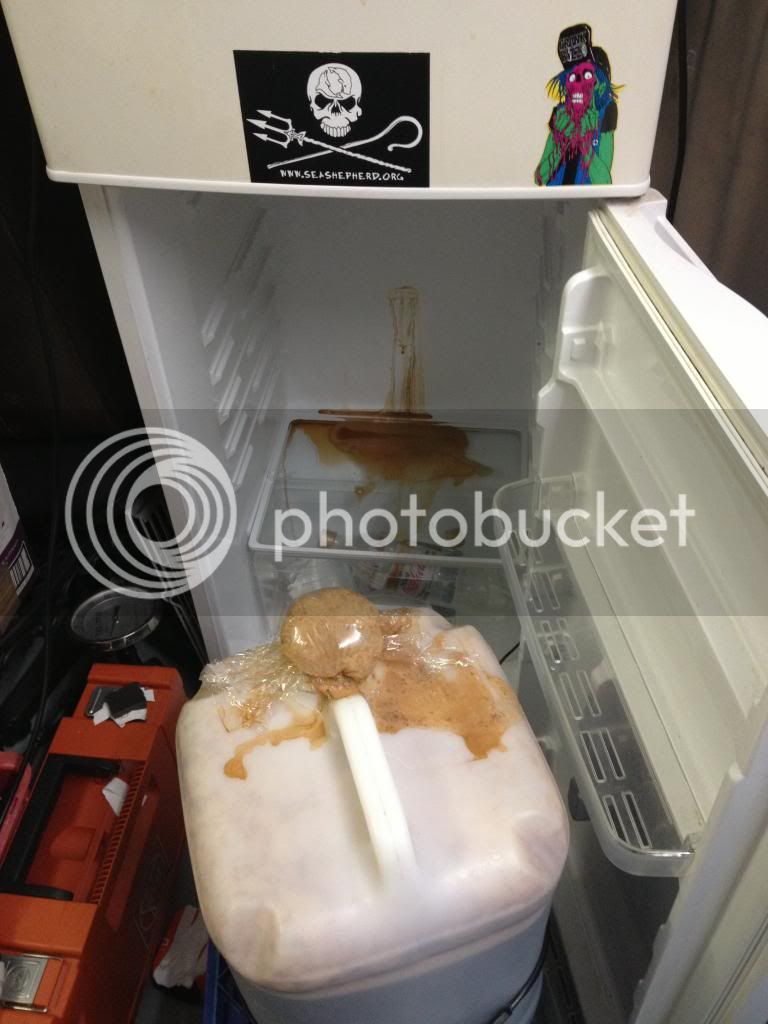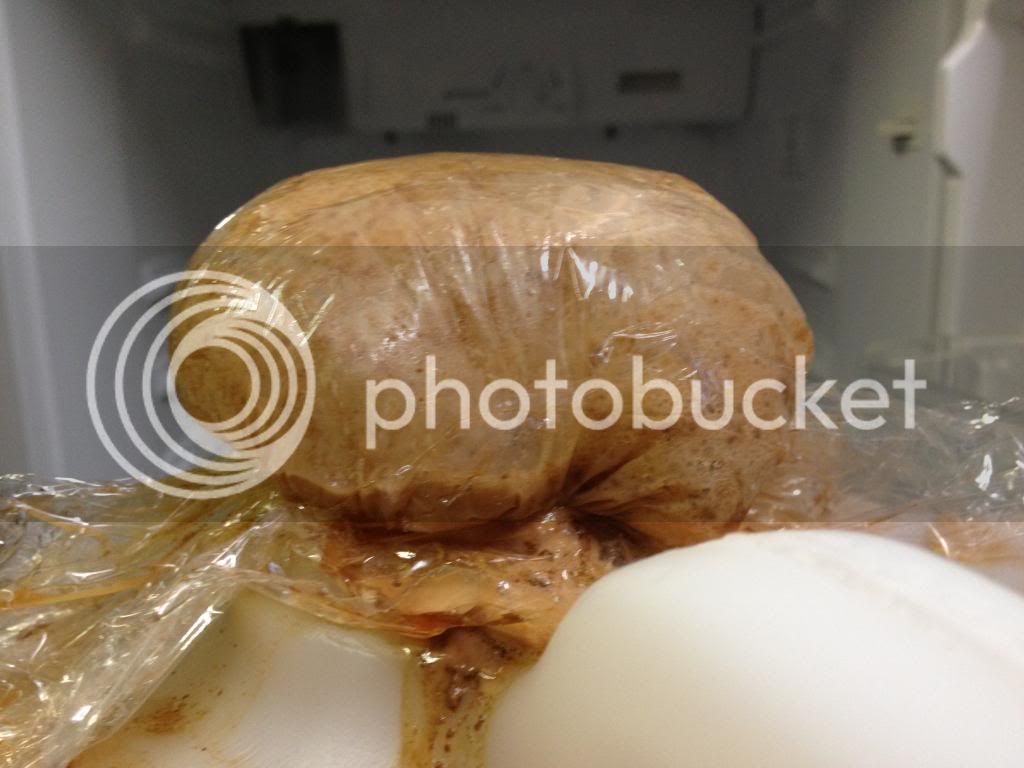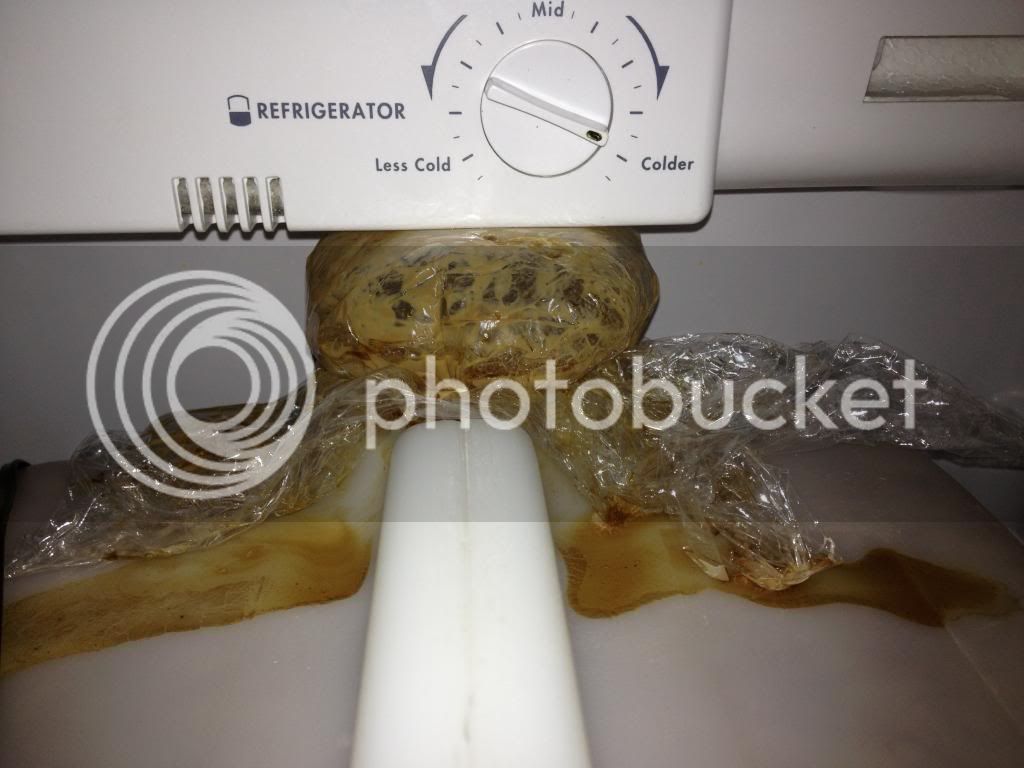Yeah, previous water additions were based on EZ Water, which predicts much higher than Brun'. Calcium of Sydney Water (West Ryde Plant) is avg 13.7ppm, although given the wildly varying pH readings I;ve been getting, I have reason to doubt this.
It looks like in future I'll have to set a baseline addition according to the spreadsheet's higest predicted pH and be prepared to adjust downwards if necessary (and upwards if possible/needs be). Dark beers were always more successful for me than pale beers before I started meddling with the forces of water chemistry, so I would not be at all surprised that EZ Water is predicting higher pH than it should be
Red IPA recipe below.
Cheers!
FB
Bongin Bongin Red IPA #8
Imperial IPA
Recipe Specs
----------------
Batch Size (L): 25.0
Total Grain (kg): 7.600
Total Hops (g): 582.00
Original Gravity (OG): 1.071 (°P): 17.3
Final Gravity (FG): 1.016 (°P): 4.1
Alcohol by Volume (ABV): 7.17 %
Colour (SRM): 22.9 (EBC): 45.1
Bitterness (IBU): 110.3 (Rager)
Brewhouse Efficiency (%): 74
Boil Time (Minutes): 60
Grain Bill
----------------
6.000 kg Pearl Malt (78.95%)
0.350 kg Crystal 120 (4.61%)
0.250 kg Candi Syrup, Dark 2 (3.29%)
0.250 kg Crystal 60 (3.29%)
0.200 kg Carapils (Dextrine) (2.63%)
0.200 kg Carared (2.63%)
0.200 kg Dextrose (2.63%)
0.150 kg Chocolate (1.97%)
Hop Bill
----------------
7.0 g Simcoe Pellet (13.5% Alpha) @ 60 Minutes (Boil) (0.3 g/L)
10.0 g Warrior Pellet (15.1% Alpha) @ 60 Minutes (Boil) (0.4 g/L)
11.0 g Simcoe Pellet (13.5% Alpha) @ 40 Minutes (Boil) (0.4 g/L)
10.0 g Warrior Pellet (15.1% Alpha) @ 40 Minutes (Boil) (0.4 g/L)
10.0 g Amarillo Pellet (8.5% Alpha) @ 30 Minutes (Boil) (0.4 g/L)
11.0 g Simcoe Pellet (13.5% Alpha) @ 30 Minutes (Boil) (0.4 g/L)
8.0 g Warrior Pellet (15.1% Alpha) @ 30 Minutes (Boil) (0.3 g/L)
15.0 g Amarillo Pellet (8.5% Alpha) @ 20 Minutes (Boil) (0.6 g/L)
18.0 g Simcoe Pellet (13.5% Alpha) @ 20 Minutes (Boil) (0.7 g/L)
10.0 g Warrior Pellet (15.1% Alpha) @ 20 Minutes (Boil) (0.4 g/L)
20.0 g Amarillo Pellet (8.5% Alpha) @ 10 Minutes (Boil) (0.8 g/L)
17.0 g Simcoe Pellet (13.5% Alpha) @ 10 Minutes (Boil) (0.7 g/L)
5.0 g Warrior Pellet (15.1% Alpha) @ 10 Minutes (Boil) (0.2 g/L)
50.0 g Amarillo Pellet (8.5% Alpha) @ 0 Minutes (Boil) (2 g/L)
30.0 g Simcoe Pellet (13.5% Alpha) @ 0 Minutes (Boil) (1.2 g/L)
100.0 g Amarillo Pellet (8.5% Alpha) @ 10 Minutes (Aroma) (4 g/L)
50.0 g Simcoe Pellet (13.5% Alpha) @ 10 Minutes (Aroma) (2 g/L)
200.0 g Amarillo Pellet (8.5% Alpha) @ 5 Days (Dry Hop) (8 g/L)
Misc Bill
----------------
0.9 g Calcium Chloride @ 0 Minutes (Mash)
4.2 g Gypsum (Calcium Sulfate) @ 0 Minutes (Mash)
4.0 g Yeast Nutrient @ 10 Minutes (Boil)
8.0 g Brewbrite @ 0 Minutes (Boil)
0.7 g Calcium Chloride @ 0 Minutes (Boil)
3.2 g Gypsum (Calcium Sulfate) @ 0 Minutes (Boil)
Fermented at 18°C with WLP001 - California Ale
Notes
----------------
Mash Schedule
52/10,62/15.64/45,72/10,78/10
Candi Syrup & Dex added @ 10 minutes before flame out with yeast nutrient & Brewbrite & 10 min hop additions. Meausurement in millilitres, NOT grams
-10 minute aroma hops added after whirlpool pump turned off
2 litre stirplate starter using 1 vial of new WLP-001 pitched whole
Recipe Generated with
BrewMate






